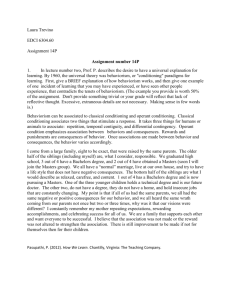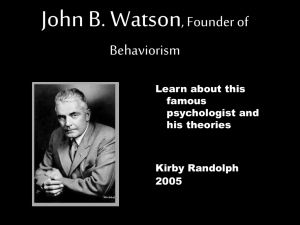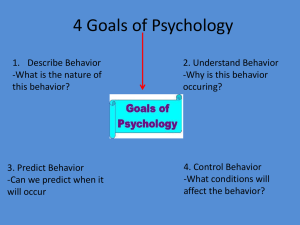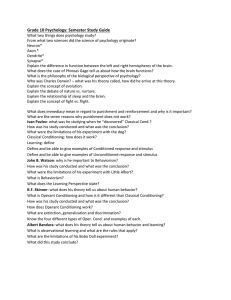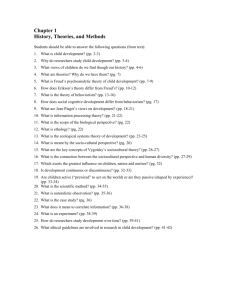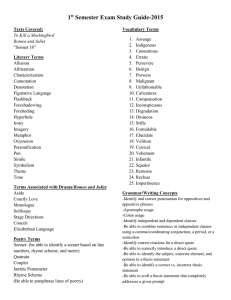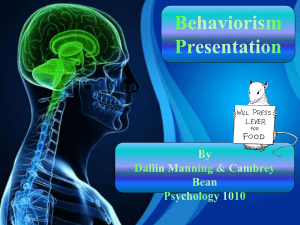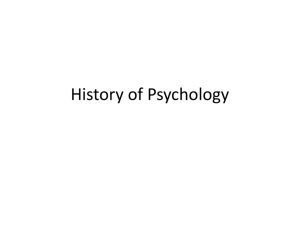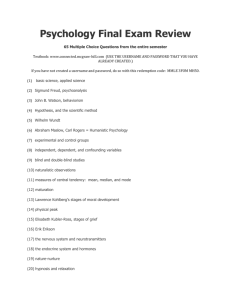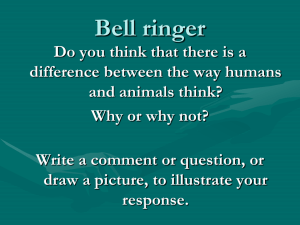Psych 401 Spring 2004: Exam 3 Study Guide
advertisement
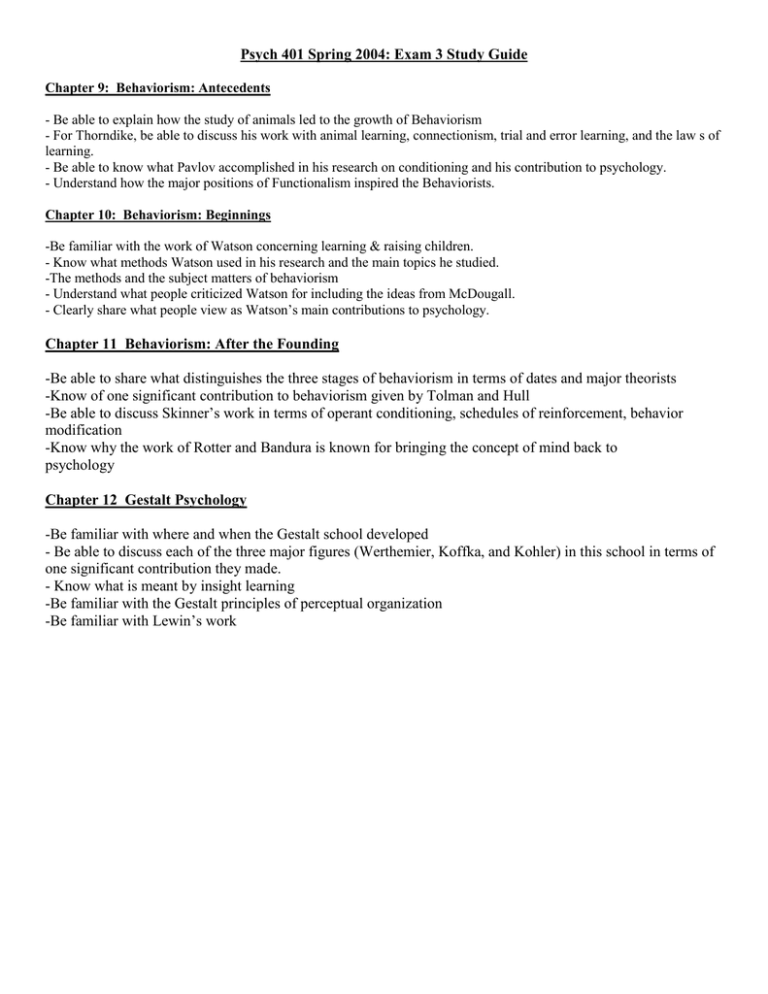
Psych 401 Spring 2004: Exam 3 Study Guide Chapter 9: Behaviorism: Antecedents - Be able to explain how the study of animals led to the growth of Behaviorism - For Thorndike, be able to discuss his work with animal learning, connectionism, trial and error learning, and the law s of learning. - Be able to know what Pavlov accomplished in his research on conditioning and his contribution to psychology. - Understand how the major positions of Functionalism inspired the Behaviorists. Chapter 10: Behaviorism: Beginnings -Be familiar with the work of Watson concerning learning & raising children. - Know what methods Watson used in his research and the main topics he studied. -The methods and the subject matters of behaviorism - Understand what people criticized Watson for including the ideas from McDougall. - Clearly share what people view as Watson’s main contributions to psychology. Chapter 11 Behaviorism: After the Founding -Be able to share what distinguishes the three stages of behaviorism in terms of dates and major theorists -Know of one significant contribution to behaviorism given by Tolman and Hull -Be able to discuss Skinner’s work in terms of operant conditioning, schedules of reinforcement, behavior modification -Know why the work of Rotter and Bandura is known for bringing the concept of mind back to psychology Chapter 12 Gestalt Psychology -Be familiar with where and when the Gestalt school developed - Be able to discuss each of the three major figures (Werthemier, Koffka, and Kohler) in this school in terms of one significant contribution they made. - Know what is meant by insight learning -Be familiar with the Gestalt principles of perceptual organization -Be familiar with Lewin’s work
